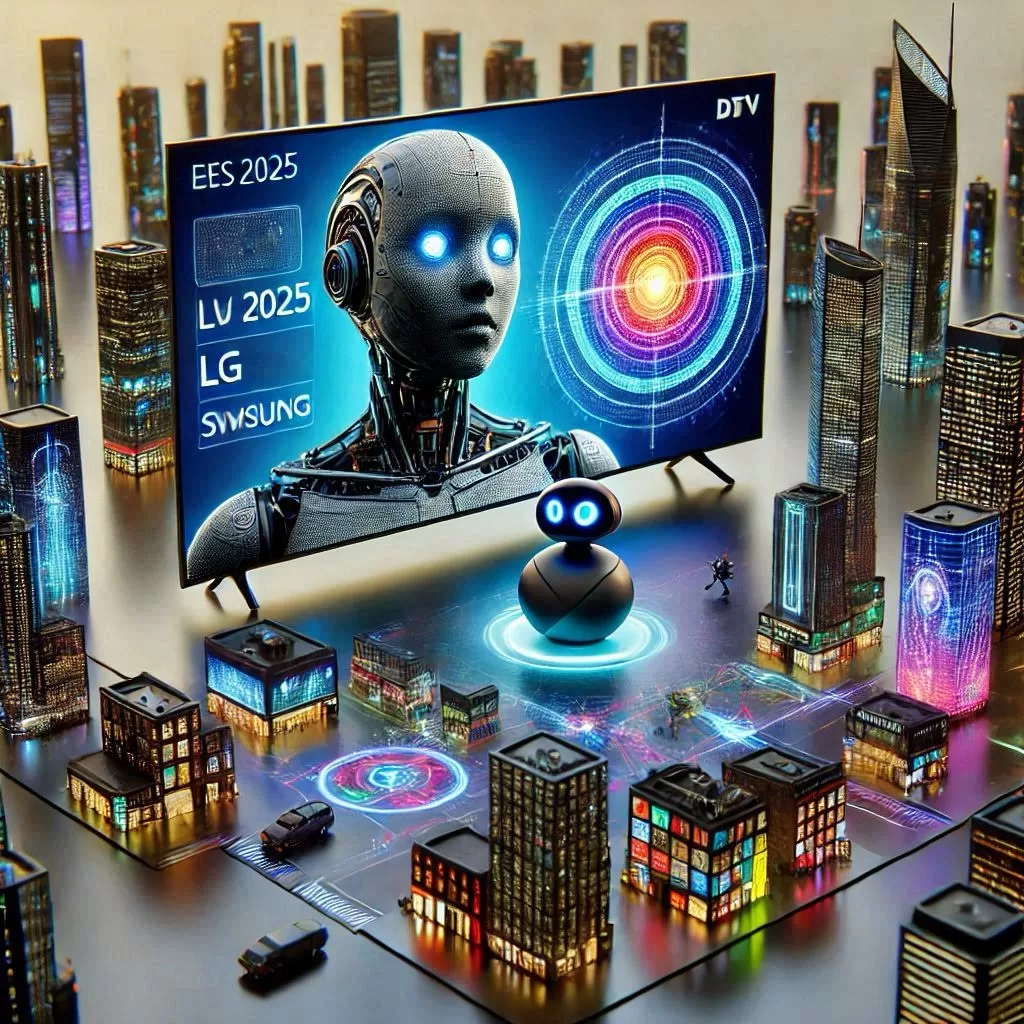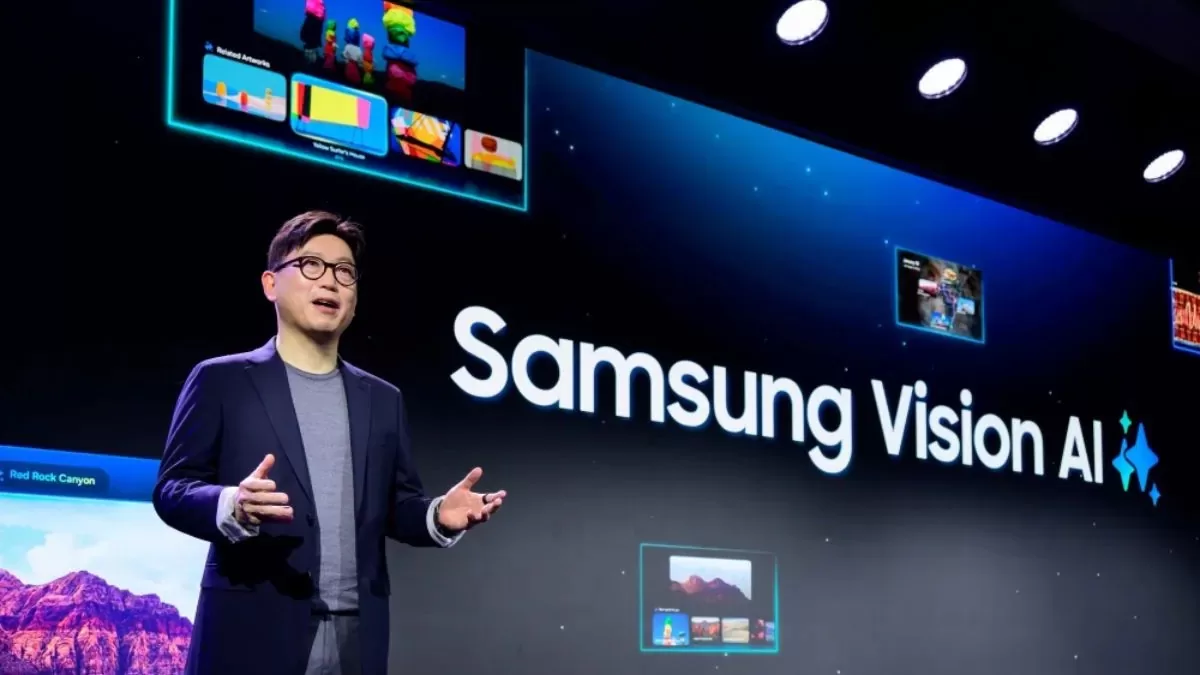This weekend at CES 2025, two tech giants, LG and Samsung, made waves by unveiling their latest smart TVs, which feature integrations with Microsoft’s Copilot AI assistant. The unveiling marked a significant moment in the intersection of artificial intelligence and consumer electronics, demonstrating the companies’ commitment to embedding cutting-edge technology into everyday devices.
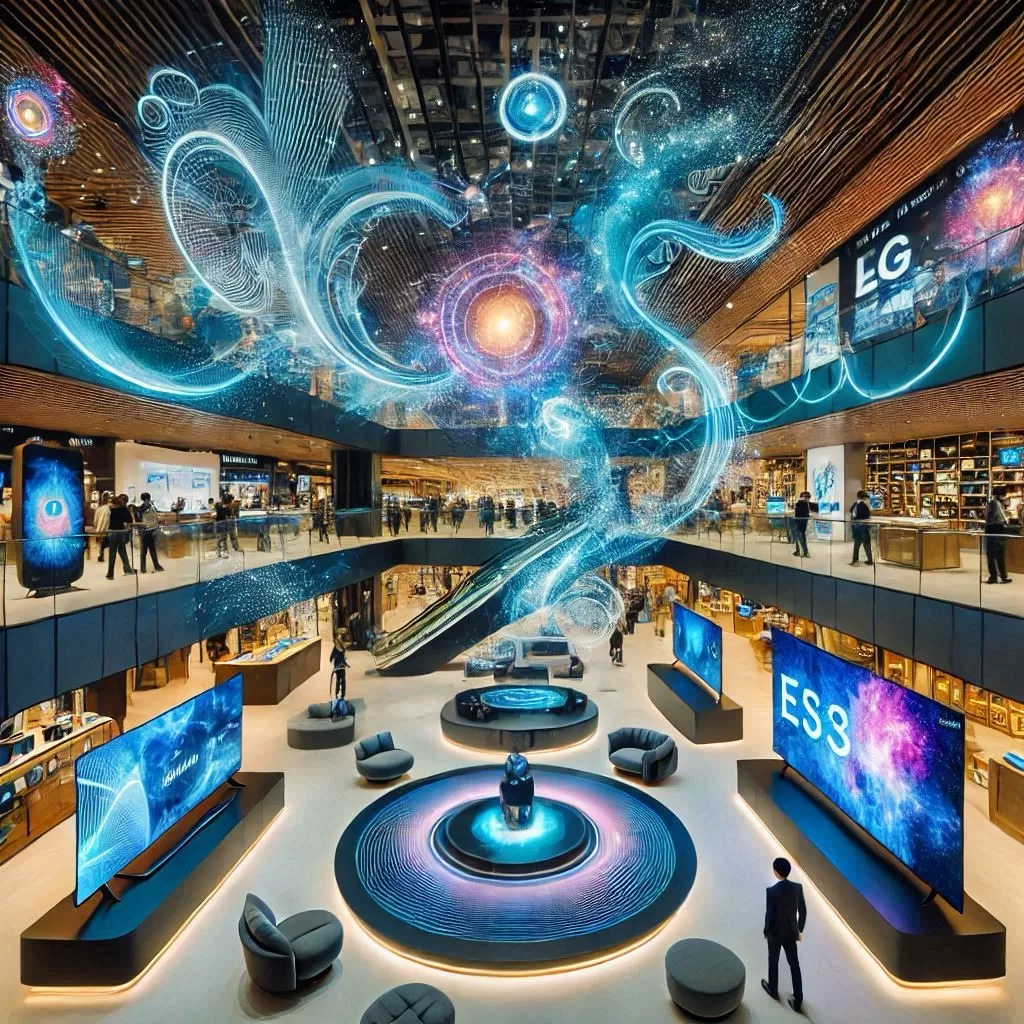
Both LG and Samsung are capitalizing on the growing interest in artificial intelligence by including dedicated AI sections in their smart TVs. These sections will provide users with a shortcut to access the Copilot web app, enabling a seamless integration of AI features directly from the television interface. This move indicates a broader trend of embedding AI into home entertainment systems to enhance user experience.
LG, in particular, is taking significant strides by incorporating an entire AI section into its TVs and rebranding its remote control as the “AI Remote.” This rebranding effort underscores LG’s commitment to promoting the benefits of large language models and convincing consumers of their value. The AI Remote is expected to play a central role in how users interact with their smart TVs, offering a more intuitive and efficient way to access AI-powered features.
Although specific details on how Copilot operates on LG’s newest TVs remain vague, the company has indicated that the integration will help users efficiently find and organize complex information using contextual cues. This suggests that Copilot will leverage advanced AI algorithms to understand user preferences and provide personalized recommendations, enhancing the overall viewing experience.
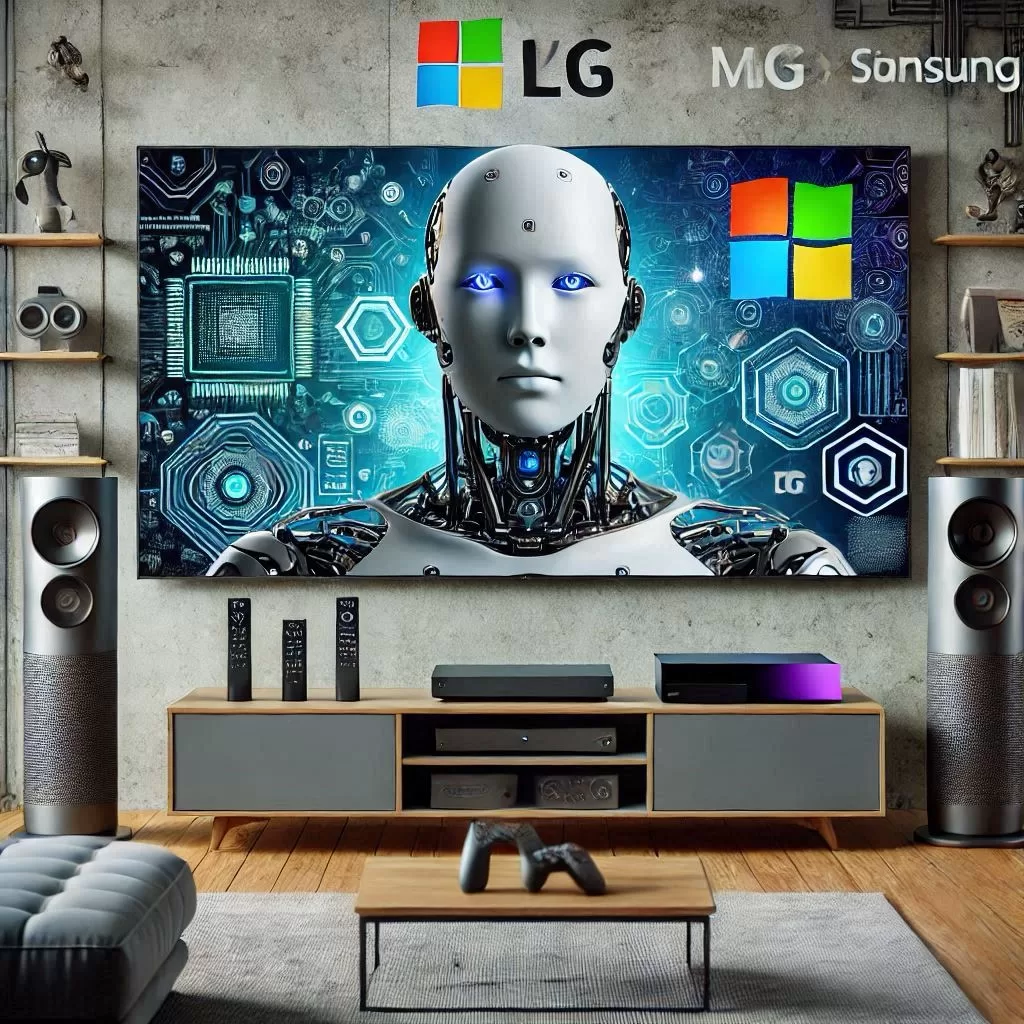
Despite the anticipation, LG has not yet demonstrated its Copilot integration. Instead, the company has showcased its own AI Chatbot feature, which is part of its smart TV ecosystem. This AI Chatbot is designed to assist users in navigating the TV’s features and finding information quickly. It appears that Copilot will be activated when users seek additional information on specific topics, making it a versatile tool for enhanced content discovery.
Samsung is also embracing AI with its Vision AI brand, which was prominently featured at CES 2025. Samsung’s Vision AI includes several advanced features such as AI upscaling, which enhances the resolution of lower-quality content; Auto HDR Remastering, which improves the dynamic range of visuals; and Adaptive Sound Pro, which optimizes audio based on the content and room acoustics. These features highlight Samsung’s commitment to leveraging AI to improve the overall viewing and listening experience.
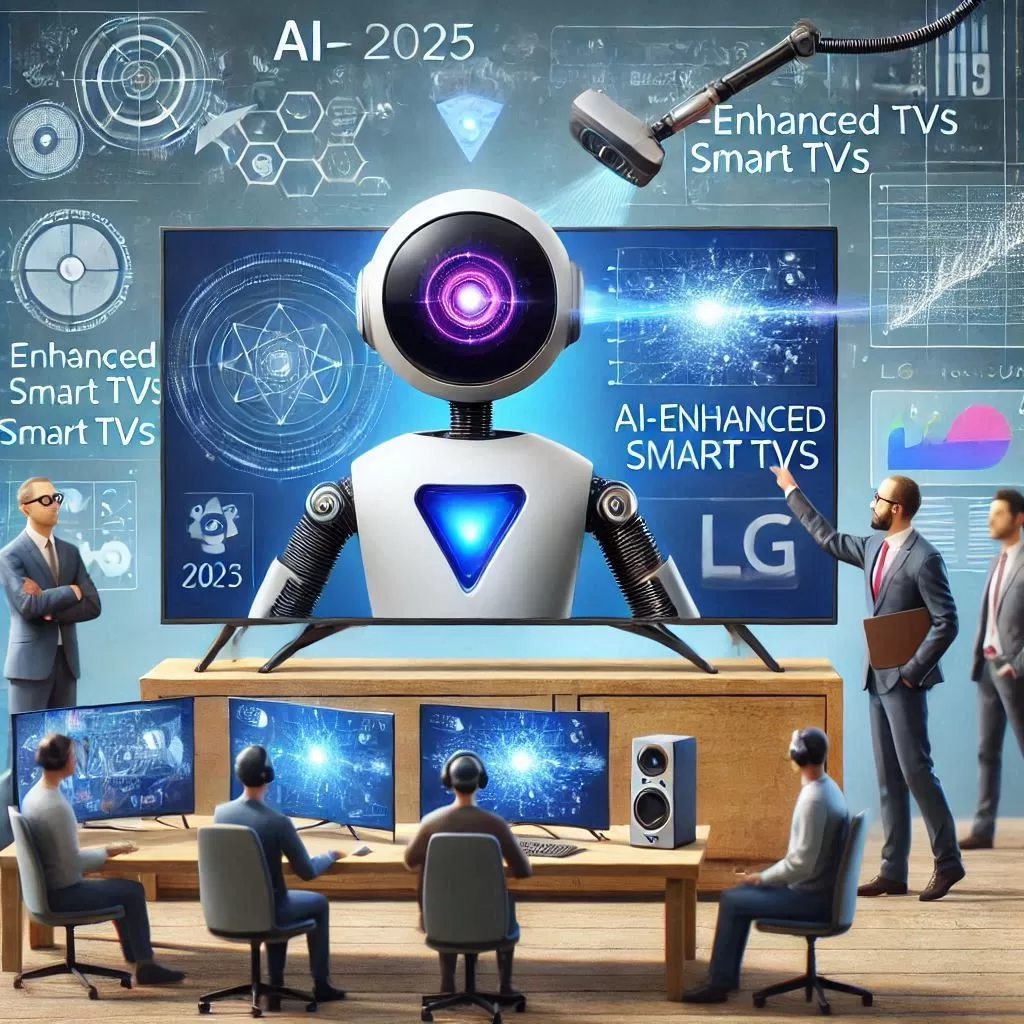
One of the standout additions to Samsung’s smart TVs is a new AI button on the remote control. This button provides users with quick access to AI-powered features, including the ability to recognize food items displayed on the screen and AI home security functions that analyze video feeds from smart cameras. These functionalities demonstrate the practical applications of AI in enhancing both entertainment and home security.
Microsoft’s Copilot is set to be an integral part of Samsung’s Vision AI section. According to Samsung’s press release, the collaboration with Microsoft will allow users to explore a wide range of Copilot services, including personalized content recommendations. This partnership aims to combine Samsung’s hardware expertise with Microsoft’s AI capabilities to deliver a more intelligent and personalized user experience.
Despite the excitement surrounding these announcements, there remains a level of uncertainty about the practical implementation of Copilot on these smart TVs. The companies have yet to provide concrete demonstrations or detailed explanations of how the AI assistant will function in everyday use. This has led to some skepticism about the readiness and effectiveness of the feature.
When approached for more information or images showcasing Copilot in action, Samsung responded that there is nothing additional to share at this time. This lack of detail has left many industry observers and consumers wondering how well the Copilot integration has been developed and whether it will live up to its promises.
Similarly, LG and Microsoft have been asked for further insights into how Copilot will be integrated into their TVs, but neither company provided a response in time for the publication. The absence of detailed information from these major players adds to the uncertainty surrounding the feature’s true capabilities.
The lack of clear demonstrations and detailed explanations from LG, Samsung, and Microsoft has raised skepticism among consumers and industry experts. There is a growing concern that these AI integrations may be more of a marketing gimmick than a substantial advancement in smart TV technology.
While the promise of AI-powered smart TVs is undoubtedly exciting, the absence of clear functionality examples makes it challenging to gauge the true value and impact of these new features. Consumers are left to speculate whether the integration of Copilot will significantly enhance their viewing experience or simply serve as a novel but underutilized addition.
As the technology landscape continues to evolve, the effectiveness of these AI integrations will ultimately depend on how well LG, Samsung, and Microsoft can deliver on their promises. The success of these features will be measured by their ability to provide tangible benefits to users, such as more personalized content recommendations, improved visual and audio quality, and practical home security applications.
In conclusion, the integration of Microsoft’s Copilot AI assistant into LG and Samsung’s smart TVs represents a significant step towards more intelligent and personalized home entertainment systems. However, the true value of these advancements will only be realized once the companies provide clearer demonstrations and detailed explanations of how the AI assistant will function in practice. Until then, consumers and industry experts alike remain cautiously optimistic about the potential of these AI-powered smart TVs to revolutionize the way we interact with our home entertainment devices.
